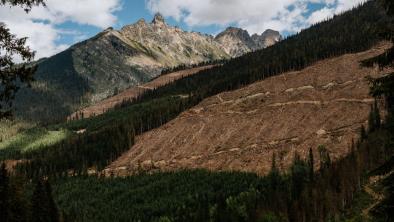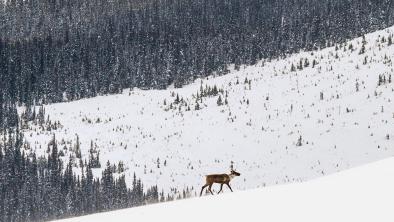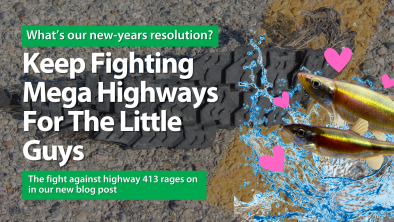It's time to say enough is enough
Courier-Islander

Photo: Typical ISA signs in Atlantic salmon
While an interview with Mary Ellen Walling, top lobbyist for the salmon farming industry in BC, was being published in the Vancouver Sun this past Tuesday, I was flying back to Canada from Puerto Montt, Chile - ground zero for the Chilean salmon farming industry.
I had spent a week documenting the heartbreaking environmental, cultural, and socio-economic devastation wrought by the industry there. Gross mismanagement of Chilean salmon farming - which reached its apotheosis as second largest global producer until collapsing suddenly over the past two years - led to a devastating outbreak of the Infectious Salmon Anemia (ISA) virus, which wiped out three quarters of the country's farmed salmon.
Aside from the environmental catastrophe, the human costs have been astounding. Close to half the workforce, 24,000 Chileans, lost their jobs almost over night. Unable to return to the lives they left to join the once burgeoning industry, they now struggle to feed their children in towns that resemble a gold rush after the gold is gone.
Rusty cages, feed bags, buoys, empty chemical containers, and other debris from the industry litter the foreshores, beaches, and ghostly work yards of these coastal communities, the remnants of an industry that is pulling up stakes and getting the heck out of Dodge.
Left to deal with the mess are the people and marine environment of this land of otherwise breathtaking beauty and cultural warmth. This is the northern entry point to the famed Patagonia - much like BC's coast, one of the great natural wonders on the planet, unacceptably marred by the industry.
Chile's coastal communities and marine environment have paid another heavy toll for the industry: much of the wild fish - anchovies, sardines, etc., ground into meal to raise carnivorous farmed salmon - comes from the waters off Chile's coast. It takes anywhere between three and five pounds of wild fish to yield one pound of farmed salmon, and the result has been the depletion of Chile's coastal ecosystems and devastation to communities who once depended on artisanal fishing for employment and sustenance.
And so it was to my horror that I read Mary Ellen Walling's callous take on the Chilean Crisis I had just witnessed. Walling told the Vancouver Sun: "Prices are up 10 to 15 per cent over the past six months because of the lack of product in the marketplace...It's good for the B.C. industry because we've got good, solid prices moving forward...There's a significant lack of Chilean product in the U.S. market. It's a great opportunity [for B.C. salmon farmers], but we can't take advantage of it. B.C. is home to a range of anti-salmon-farming groups. [Their] campaign has delayed opportunities for the industry to expand."
Having witnessed firsthand the plight of the Chilean people and environment, this kind of statement is sheerly appalling in its ignorance and selfishness.
Here are three big ways the primarily Norwegian industry is now profiting from its own negligence and the suffering of the Chilean people and environment:
1. Decreased global supply = higher market prices. This is Walling's main argument.
2. Excuse for expansion in BC. Walling is using the crisis to push for more farms in BC - just as Norway is doing right now (during a recent trip to Norway, I observed their fisheries minister announcing intentions to boost production there by 5%). The irony is that the push to expand the industry in Chile is very much responsible for the ecological crisis that has now hobbled it. The same may well happen here if we're not careful.
3. Privatizing the seas and consolidating the market in Chile. This is the really sneaky and perverse one. Not unlike the financial meltdown and ensuing bailout in the US and around the world, those responsible for the problems are now poised to profit from them.
The Norwegian companies who likely brought the virus to Chile are now lobbying along with the banks who finance the industry to privatize the country's ocean farm tenures. Unlike Canada and Norway, the Norwegian behemoths don't yet dominate the industry in Chile - roughly half of the companies are still Chilean owned. However, they are smaller than the Norwegian multi-nationals and thus more immediately vulnerable to bankruptcy from the ISA crisis. The farm tenures have always been leased to companies by the state. Now that many of the smaller Chilean companies are defaulting on their loans as they have no product to sell, the banks and the big Norwegian companies are pushing to privatize the water rights, so that they can take them over as collateral for the defaulted loans. The banks will seize the farm tenures and sell them to the big Norwegian companies - who can weather the storm of their own making...and Presto!
The Norwegian companies now have a monopoly on the Chilean industry, just like they do everywhere else. In the very least they are profiting from their own negligence, which is, for lack of a better word, disgusting.
Having just clashed with Walling, her industry colleagues, and chummy Canadian government representatives in Norway at the world's biggest fish farming trade show, AquaNor, I'm no stranger to the industry's tactics. But this piece of PR - profiting from the tragedy that is the Chilean ISA crisis - represents a new low in my view.
Walling, the industry, and our provincial and federal governments need to hear from the people of BC that we will no longer stand for the problems associated with this industry in BC and around the world.
In the wake of the collapse of the Fraser Sockeye and the crises in Chile, Scotland, Ireland - everywhere this industry operates - it is time to say "Enough is enough!"
Damien Gillis
Documentary Filmmaker,
Vancouver


